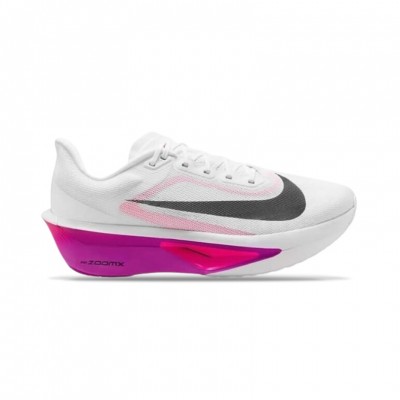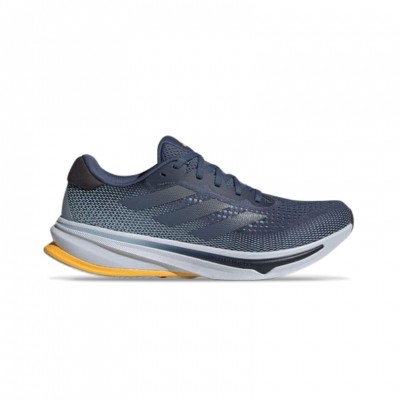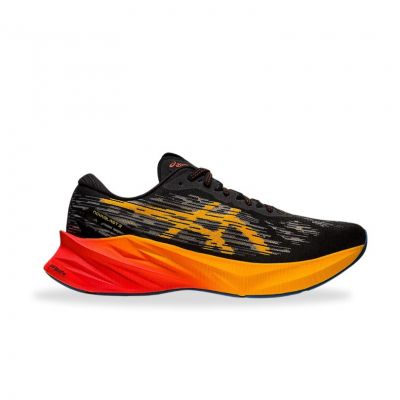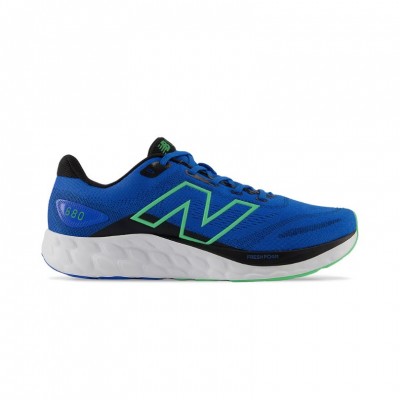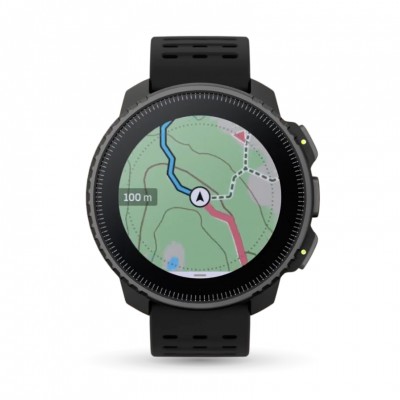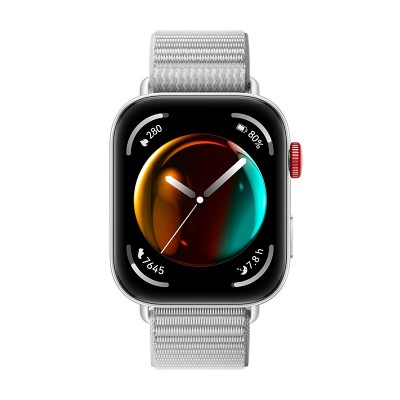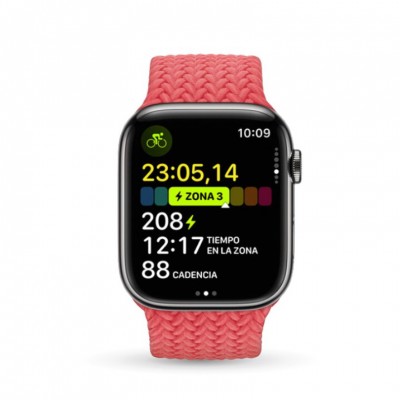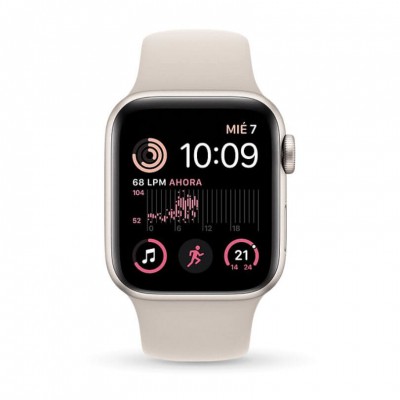Rest and recovery are just as important as training. Although this statement is a very typical cliché, its real value is still a basic premise that has to be in the ABC of every runner. Moreover, it may be the case that you find yourself in that stagnation phase, and no matter how much you train, you are not able to improve your times or recover properly. If so, you may be underestimating a key factor: sleep.
Not sure which running shoe to choose?
In a few simple steps we help you to choose the ideal running shoe for you
Go to the Shoe FinderIt is true that as runners we are very focused on accumulating kilometers, improving our pace and refining our running technique to be more efficient. Something that, in many cases, does not lead to leaving the recovery phase in the background. And therefore, our rest and sleep time. You well know that sleep is the time when our body and mind regenerate. It is when muscle tissues are repaired, learning is consolidated and hormonal balance is restored.
In other words, getting a good night's sleep is the secret to being ready to show your best version of yourself on the asphalt and/or in the mountains.
In this RUNNEA Magazine article we have decided to focus on discovering how optimal and recuperative sleep can improve your athletic performance. But we also go a step further and talk about one of the most innovative technological resources on the market today: the Loop Earplugs. A new gadget that will help you enjoy the rest you deserve.

The relationship between sleep and muscle recovery
It is a proven fact that during sleep, especially in the deep phases, protein synthesis processes are activated and growth hormone is released, which are essential for muscle recovery.
A study published in the journal Sports Medicine highlights that quality sleep is key to reducing the risk of injury and optimizing physical performance. In other words, sleeping well not only helps you feel more rested, but also prepares you physically to perform better.
In addition, research from Stanford University looked at how extending sleep hours improved the performance of college athletes. Runners who participated in the study experienced faster times and better endurance.
On the other side of the coin, lack of sleep negatively affects our anaerobic capacity and increases perceived exertion. In other words, with fewer hours of rest and sleep, every kilometer you run can become a real "wall". And we are aware that no self-respecting runner wants to reach that point.

Key strategies to improve sleep quality in runners
Considering the importance of sleep, let's talk about how we can improve it. Here, each runner has his or her own effective methods, but RUNNEA has some strategies that can work for you:
Sleep routine
Keeping a regular sleep and wake-up schedule helps regulate our circadian rhythm. This means that your body becomes accustomed to certain rest hours, making it easier to fall asleep and achieve a deeper, more restful sleep.
That said, the "magic formula" is to try to determine a specific time to go to bed, and also to wake up. By the way, an important nuance to add: this sleep routine should also be applied even on weekends.

The right environment for better sleep
The US National Sleep Foundation has its own essential recommendation: sleep in a dark and quiet environment. Of course, this point is not always easy to achieve. This is where the unique Loop Earplugs come into play.
The cutting-edge technology and design used in these earplugs ensure you block out ambient noise without sacrificing comfort. Whether you live on a busy street, have noisy neighbors or are simply looking to shut out everything while you sleep, Loop Earplugs are the perfect tool to enjoy a sound night's sleep.
Pre-sleep relaxation
You also have the option of dedicating a few minutes to apply a relaxation method before going to bed.
Meditation techniques, deep breathing or even gentle stretching can help you reduce stress and prepare your mind and body for rest. Several scientific studies have shown that these practices improve sleep quality and reduce the time it takes to fall asleep.
Why not try a relaxation routine tonight?

Innovation in recovery: How Loop Earplugs can help optimize sleep
Perhaps you've tried earplugs before and were not convinced by the experience. But at RUNNEA we have the solution: Loop Earplugs. We guarantee that your sleep experience will be totally different.
These earplugs feature an innovative design that not only blocks annoying noises, but does so ergonomically and comfortably. They are made of soft and lightweight materials, which means you can wear them all night long without any discomfort. This is undoubtedly a big plus point.
For those of us who live in noisier environments or are more sensitive to outside sounds, Loop Earplugs are a great value tool. By minimizing auditory distractions, they allow our brains to more easily enter deep sleep phases, where most muscle recovery occurs.
So your number one goal should be: to sleep without interruptions and wake up feeling well rested. Without feeling tired from the moment you set foot on the floor.

The importance of the quantity and quality of sleep in comprehensive recovery.
The key to everything we are explaining at RUNNEA about optimizing your rest and recovery is focused on not only sleeping more hours, but sleeping better. The theory states that our sleep is divide into several phases, and each one plays a fundamental role in our recovery.
- Deep sleep (NREM): during this phase, the body focuses on regenerating muscles and tissues, strengthening the immune system and storing energy for the next day. This is when growth hormone is released in greater quantities, facilitating muscle repair after those intense workouts.
- REM sleep: this is where memories and motor learning are consolidated. For runners, this is essential, as it helps improve running skills and coordination.
What does science say about it? A concrete study
The relationship between sleep and athletic performance has been extensively studied, and one of the most relevant papers on this campo was published in the Journal of Clinical Sleep Medicine. In the study entitled "Sleep and Athletic Performance" (1), researchers analyzed how the quality and quantity of sleep directly affect athletes' performance.
Key findings of the study
- Improvements in accuracy and reaction times: athletes who got more hours of sleep showed a significant improvement in their accuracy and reaction times. This is especially relevant for runners, where a quick and coordinated response can make all the difference in competition.
- Greater training efficiency: Adequate sleep was associated with greater efficiency during training sessions. Runners reported feeling more vital and energetic, as well as being able to maintain higher paces without experiencing premature fatigue.
- Reduced risk of injury: Lack of sleep was associated with an increased risk of injury. Athletes who did not sleep well were more likely to suffer muscle and joint injuries, due to a decrease in resilience and concentration.
- Impact on cognitive ability: the study highlighted that lack of sleep and rest affects cognitive functions such as decision making and focus, critical factors during races and intense training.

Study recommendations for runners
For runners, these findings underscore the need to prioritize sleep as an essential part of their training plan. Quality sleep not only improves muscle recovery but also optimizes neuromuscular and cognitive function, key aspects for improving running performance.
- Sleep at least 9 hours per night: this is the recommended amount for adults, but athletes can benefit from even more sleep for optimal recovery.
- Maintain a consistent sleep routine: going to bed and waking up at the same time every day helps regulate the biological clock and improves sleep quality.
- Create an environment conducive to sleep: a dark, quiet, cool environment makes it easier to fall asleep and maintain deep sleep.
- Schedule strategic naps: short naps of 20-30 minutes can be beneficial for recovering from intense training sessions or compensating for an insufficient night's sleep.
Conclusion of the study
The "Sleep and Athletic Performance" research concludes that sleep is a critical component of athletic performance and recovery. Thus, runners who invest in improving their sleep routines can benefit from:
- Significant improvements in performance.
- Reduced risk of injury.
- Better overall sense of well-being.

Cases of elite runners who prioritize sleep to improve performance.
Of course, looking at what elite athletes do can be a good example to follow when establishing effective strategies to optimize our recovery processes.
Eliud Kipchoge
The world's best marathon runner and holder of the second best marathon time (2:01:09), Eliud Kipchoge, considers sleep a fundamental component of his training. He sleeps between 9 and 10 hours a day to ensure full recovery and maximize his performance.
Moreover, Kipchoge himself has mentioned in several interviews that without good rest, it is impossible to perform at the highest level.
Shalane Flanagan
2017 New York Marathon winner and one of the top American distance athletes, Shalane Flanagan, also prioritizes sleep. Her team motivates her to rest at least 8 hours every night, as this directly affects her recovery time and her ability to stay injury free.
In his book "Run Fast. Eat Slow.", Flanagan shares the following quote:
Sleep is my secret weapon. Prioritizing sleep allows me to train hard and stay injury free. I always aim for 8 to 9 hours of sleep per night.
The American athlete attributes much of her success and longevity in the sport to her commitment to quality sleep.

Mo Farah
The multiple Olympic and world medalist in long-distance running. Farah has been outspoken about how sleep affects his performance, acknowledging that adequate rest is essential to support the demands of his training schedule.
I try to get about 10 hours of sleep a day, including naps. Sleep is important for my recovery and helps me to be in the best shape possible.
These examples highlight how quality sleep is critical not only for those of us who are recreational runners, but also for elite athletes. They all agree that getting good sleep is not optional, but an essential part of their strategy to maximize performance, prevent injury and prolong their running careers.

Prioritize sleep and rest to be a more efficient runner.
We've seen how sleep is a key pillar in recovery and how it can directly influence your progression and performance. Implementing strategies such as maintaining a sleep routine, practicing relaxation techniques and creating the right environment are the ingredients to improve your recovery phase after a demanding workout. Also, don't forget Loop Earplugs as an effective tool to ensure better rest.
Recovery starts in bed! By optimizing your rest, you'll be better prepared for any sporting challenge, while reducing the risk of injury and feeling more motivated to keep moving forward.
Tighten your running shoes, but also fluff your pillow! The path to your goals starts with a good night's sleep - sweet dreams and happy miles!
(1) Fullagar, H. H., Skorski, S., Duffield, R., Hammes, D., Coutts, A. J., & Meyer, T. (2015). Sleep and athletic performance: the effects of sleep loss on exercise performance, and physiological and cognitive responses to exercise. Sports Medicine, 452), 161-186.
Read more news about: Running Training






